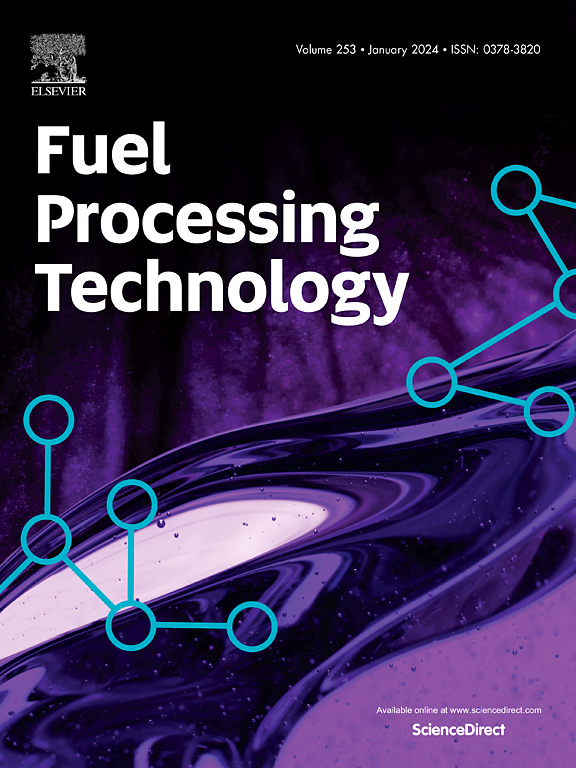Power to hydrogen: A geospatial and economic analysis of green hydrogen for UK high-heat industry
IF 7.2
2区 工程技术
Q1 CHEMISTRY, APPLIED
引用次数: 0
Abstract
This work analyses the economic feasibility of the core parts of a Power-to-Hydrogen system and provides a rigorous rational and methodology for sizing the facility by minimizing the Levelized cost of Hydrogen (LCOH) as a primary aim and reducing the carbon intensity of the hydrogen produced as a secondary aim. The study started with an in-depth study into the literature in the surrounding topic areas. The scaled hydrogen demand profile for high heat industry is synthetically produced allowing for a reasonably sized facility across regions of the UK. Monthly resolution of wind and solar data from each chosen location is fed into the optimization model, yielding a LCOH between 3.76 £/kg to 4.87 £/kg. The lowest LCOH is in regions with high quality wind and solar availability, and storage in the range of 40–96 h of average demand. All locations achieved the EU standard for green hydrogen and are tolerant to increases in grid Electricity prices. Further research would benefit from higher resolution renewable resource data, carbon pricing.
氢动力:英国高温工业绿色氢的地理空间和经济分析
这项工作分析了电力制氢系统核心部分的经济可行性,并提供了一个严格的理性和方法,以最小化氢的平准化成本(LCOH)为主要目标,降低氢的碳强度为次要目标。本研究首先深入研究了相关主题领域的文献。高热量工业的规模化氢需求剖面是综合生产的,允许在英国各地区建立合理规模的设施。每个选定地点的风能和太阳能数据的月分辨率被输入到优化模型中,得到的LCOH在3.76英镑/公斤到4.87英镑/公斤之间。LCOH最低的地区具有高质量的风能和太阳能可用性,平均需求在40-96小时之间。所有地点都达到了欧盟的绿色氢标准,并能承受电网电价的上涨。进一步的研究将受益于更高分辨率的可再生资源数据、碳定价。
本文章由计算机程序翻译,如有差异,请以英文原文为准。
求助全文
约1分钟内获得全文
求助全文
来源期刊

Fuel Processing Technology
工程技术-工程:化工
CiteScore
13.20
自引率
9.30%
发文量
398
审稿时长
26 days
期刊介绍:
Fuel Processing Technology (FPT) deals with the scientific and technological aspects of converting fossil and renewable resources to clean fuels, value-added chemicals, fuel-related advanced carbon materials and by-products. In addition to the traditional non-nuclear fossil fuels, biomass and wastes, papers on the integration of renewables such as solar and wind energy and energy storage into the fuel processing processes, as well as papers on the production and conversion of non-carbon-containing fuels such as hydrogen and ammonia, are also welcome. While chemical conversion is emphasized, papers on advanced physical conversion processes are also considered for publication in FPT. Papers on the fundamental aspects of fuel structure and properties will also be considered.
 求助内容:
求助内容: 应助结果提醒方式:
应助结果提醒方式:


